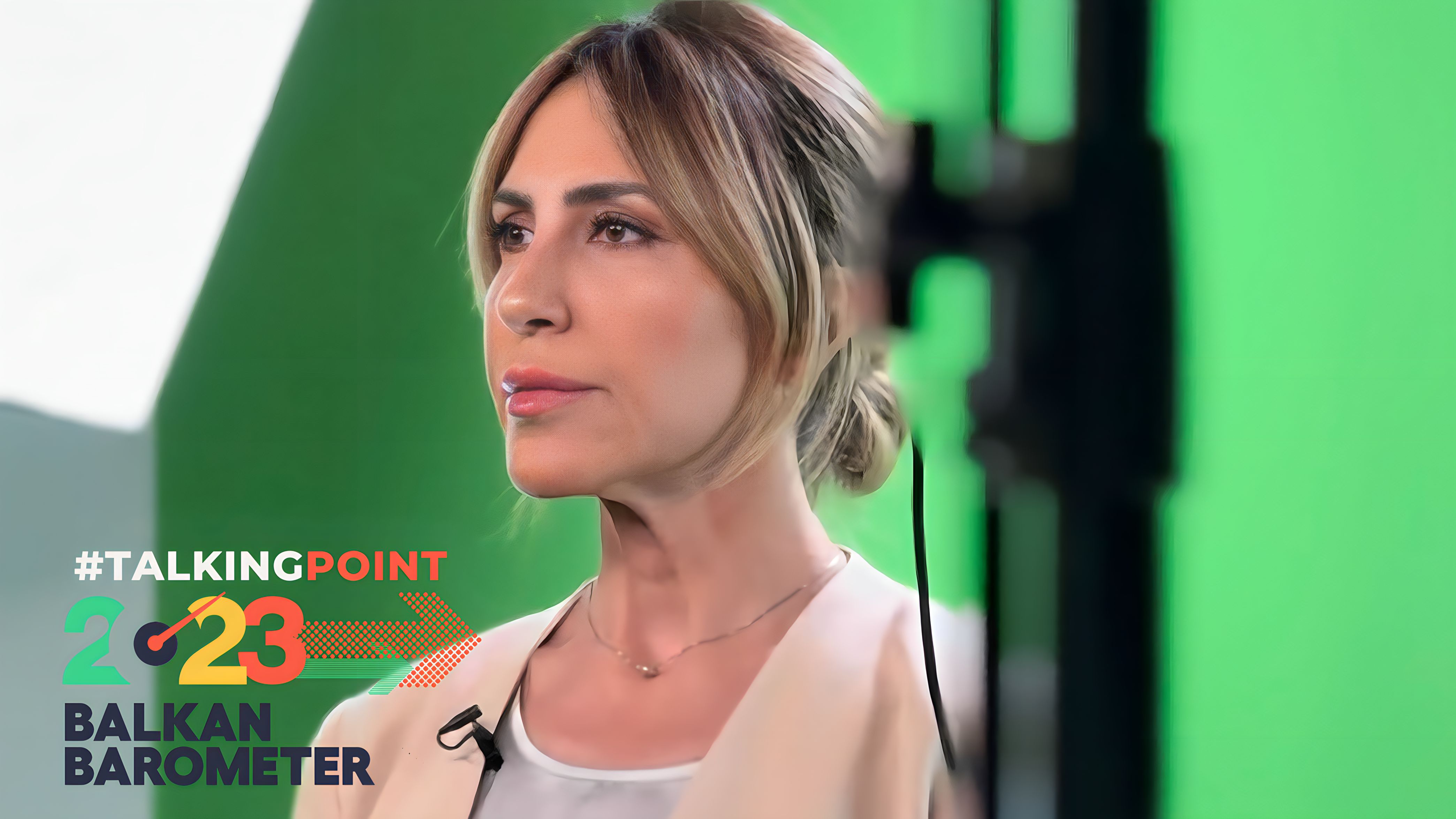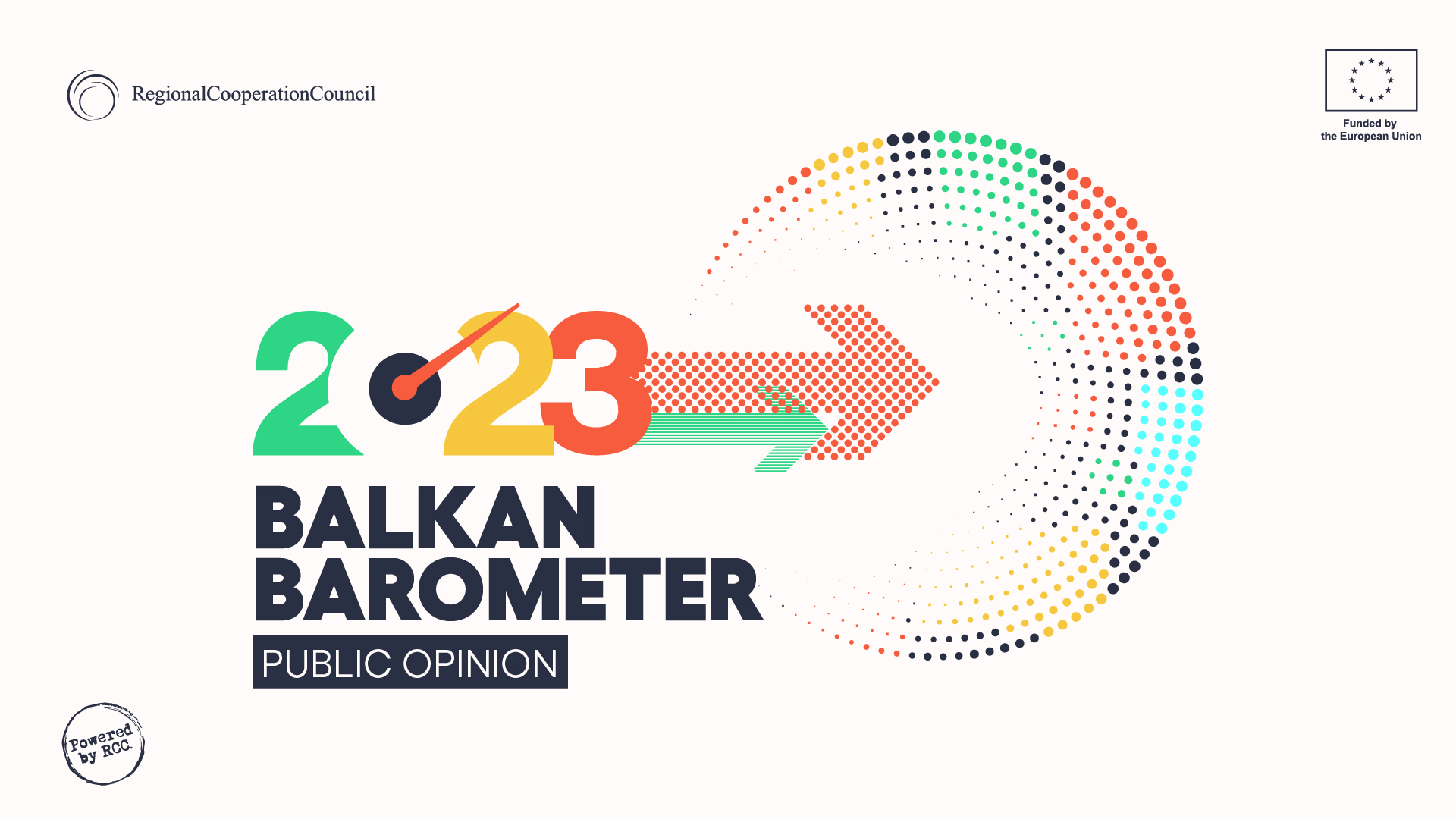RCC-ov Balkan barometar 2023: Baza podataka istraživanja javnog mnijenja sada je dostupna na https://www.rcc.int/balkanbarometer/results/2/public 69% of Western Balkan citizens agree that what brings them together is more important than what separates them
18 July 2023

RCC Secretary General Majlinda Bregu presenting the Balkan Barometer Public Opinion 2023 data in the latest issue of Talking Point

Balkan Barometer Public Opinion 2023 (Design: RCC/New Politics)
Sarajevo - For the 9th time in a row, the Regional Cooperation Council is publishing the results of Balkan Barometer - the annual survey among six thousand people from the entire Western Balkans, giving an overview of their opinions on regional cooperation, EU integration, trust in the public institutions and media, their biggest concerns, employment, climate change, security, digital life, transport, rule of law, travel, etc. Results are available in the database at https://www.rcc.int/balkanbarometer/.
“The Balkan Barometer reveals 3 main public opinion trends in the Western Balkans. First the good news, 76% of people believe regional cooperation is good for their economy. Moreover, 69% agree that what brings the Western Balkan citizens together is more important than what separates them. The second one is that the support to EU membership in the region is now 59% or 3% less than in 2021. And the third one is depopulation concern as 44% think to live abroad, 5% more than in 2022. It is also extremely worrisome that 71% of young people are considering leaving their home country,” said RCC Secretary General, Majlinda Bregu.
Balkan Barometer 2023, Public Opinion edition main findings:
- 1 in 5 associate the Balkans with hope or cooperation
- For 15%, the Balkans means confidence, but for 1 in 10, it means fear
- 51% are not satisfied with the economic situation
- 27% say corruption is the biggest problem
- 69% say the law is not applied to everyone equally – 7% more than in 2022
- 45% feel threatened by illegal possession and misuse of weapons
- 71% say the war in Ukraine affected their purchasing power significantly
- 75% do not trust political parties
- 65% expressed an increased concern regarding the spread of fake news
“The Balkan Barometer tells a story of people worried about their jobs, wellbeing and how everything what is going on around us is affecting our vulnerable region. It tells a story of willingness to make our home a better place of living, so that we can feel safe, secure and with a better future ahead for us and our children. In regional cooperation and the things that unite us, people see hope and opportunity to better themselves,” concluded Bregu.
The Business opinion edition of the Balkan Barometer 2023 will be available online in the course of the next week.
More INFO on Balkan Barometer: rcc.int/balkanbarometer
***
Balkan Barometer is commissioned by the RCC and financed by the European Union. It is conducted each year since 2015 by an independent agency among more than 6,000 citizens and 1,200 companies throughout the region.
The 2023 edition of the Balkan Barometer Public Opinion Survey was conducted as a quantitative research and data was collected by using CAPI (Computer-Assisted Personal Interviewing) data collection method. The interviews were carried out via direct, face-to-face household interviews by trained interviewers from Indago-led consortium of research companies between 3 March – 4 April 2023 in Albania, Bosnia and Herzegovina, Kosovo*, North Macedonia, Montenegro and Serbia.
The Balkan Barometer is firmly established as a reliable source of regional data widely employed and referenced by media, business, civil society and decision-makers alike.
More information on methodology is available here.
*This designation is without prejudice to positions on status, and is in line with UNSCR 1244/1999 and the ICJ Opinion on the Kosovo declaration of independence.



